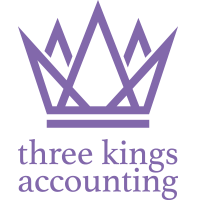Should You Do Your Own Tax Return Or Hire An Accountant?
The 2018/19 tax year has just ended, which means you can now file your tax return online via the HMRC website. But, is this something that you should do yourself or should you hire an accountant?
A lot of people do not want to spend their hard-earned cash on accounting services and would rather attempt it themselves. However, a simple mistake or oversight could end up costing you much more than paying an accountant would.
With that being said, in this article, we highlight some of the pros and cons associated with both options.
Doing Your Own Tax Return – More Control, Less Cost
Let’s begin by taking a look at the advantages that are associated with submitting your own tax return to HMRC.
Of course, the obvious benefit is that you are not going to have to pay someone else to do it. A lot of people also prefer this option because it means that they have full control and they are not relying on someone else.
The Risks Of Doing Your Own Tax Return
Despite the possible savings and increased control, there are a number of risks associated with doing your own tax return. The biggest risk is that you could make a mistake.
A simple error, whether intentional or not, could result in monumental fines from HMRC and a lot of unnecessary stress. Self-assessments are comprehensive, with lots of fields to fill in, some of which will be applicable to you and some won’t.
If you put a figure in the wrong box or fail to declare something by accident, you could be in a lot of trouble if HMRC carries out an audit. And, when you consider the fact that HMRC is cracking down on tax errors and mistakes, it really is something you need to be concerned about.
Missing The Tax Return Deadline Is An Automatic £100 Fine
In fact, almost 750,000 people missed the most recent tax return deadline, meaning they will all have to pay a fine of £100 as a minimum.
With an accountant, you will have more chance of your tax return being filed on time because you won’t have to make time to do it yourself. Instead, you can focus on your core profit-accumulating activities while your accountant handles all of your tax commitments.
Staying Up To Date With Legislation
A final point worth noting is that the rules and regulations regarding tax are changing all of the time. It can be almost impossible to stay up-to-date with the law, and then there is the confusing matter of determining what is applicable to you and what isn’t. You won’t have to worry about any of this if you hire an accountant.
Get In Touch With Three Kings Accounting
As you can see, there are positive and negatives associated with both hiring an accountant and doing your tax return yourself. But, in most situations, it is advisable to hire an accountant to do the job correctly.
Here at Three Kings Accounting, we offer a range of corporate and personal tax accountant services which includes online filing, advising on payment dates and how to pay, dealing with HMRC compliance visits and HMRC tax enquiries and investigations.
So, if you feel you need a helping hand, do not hesitate to pick up the phone and call us on 01753 840 188.


